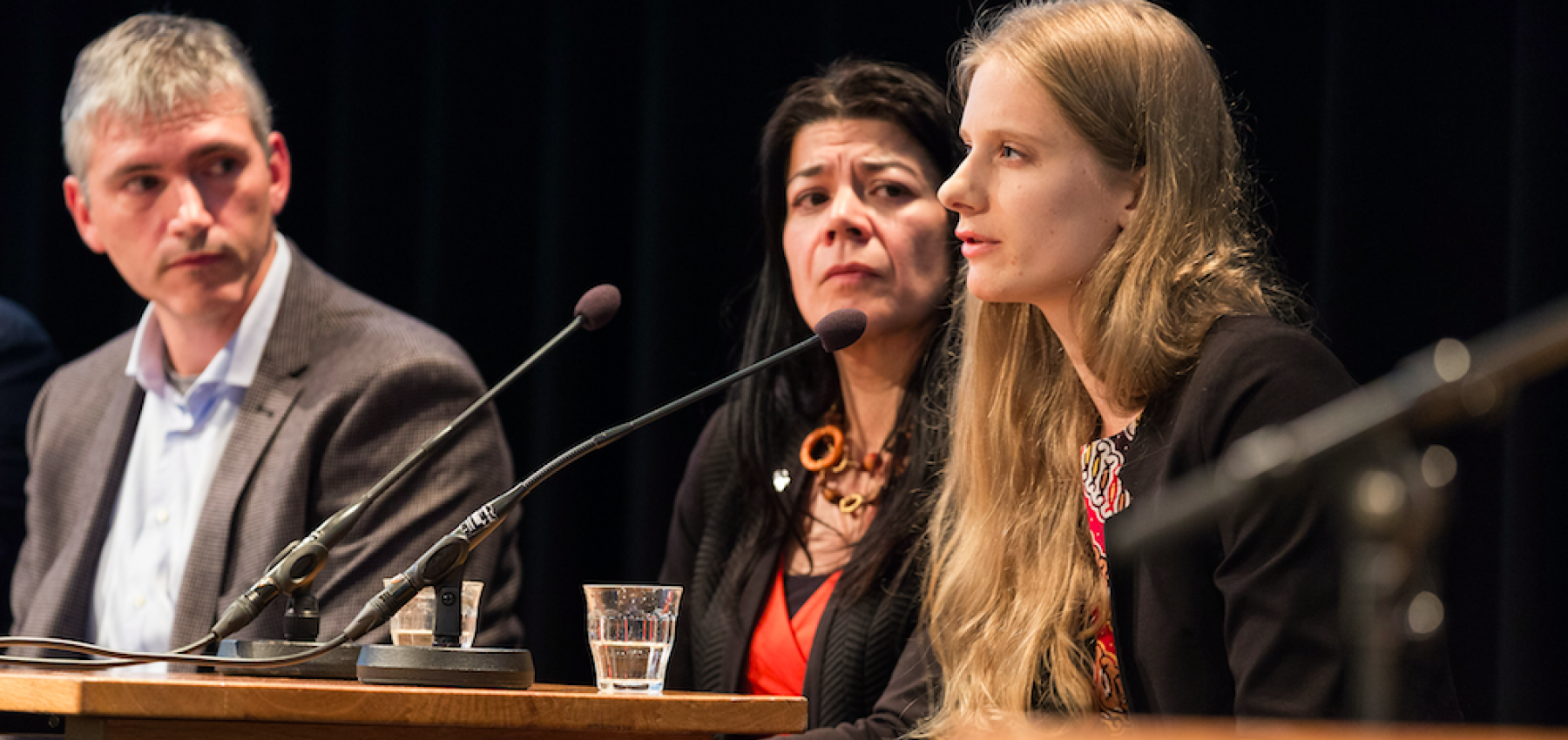Independence, decolonization, violence, and war in Indonesia, 1945-1950 was a joint research programme of the Royal Netherlands Institute of Southeast Asian and Caribbean Studies (KITLV), the Netherlands Institute for Military History (NIMH) and the NIOD Institute for War, Holocaust and Genocide Studies. The research results were presented in February 2022.
From 17 February 2022 onwards, twelve publications will be released as e-book and paperback with Amsterdam University Press (AUP).These publications will be freely accessible through open access. All titles and dates of release are available on the AUP website.
After 17 Febrary 2022, this website will not be updated. However, news items will be posted on publications that are set to be released and on a debate to be held in the Tweede Kamer (House of Representatives).
Research approach
The project deals with the dynamics of violence, from the proclamation of the Indonesian Republic on 17 August 1945 and the chaotic period from August 1945 to early 1947, until the end of the war in 1949. The research programme consists of 8 subprojects and looks into the nature, causes and impact of the Dutch acts of violence. The acts of violence are studied in a wider political, social, and international context. Military, political, and legal aspects are covered, as is the impact of the violence on various population groups. Attention is also paid to the political and social aftermath in the Netherlands. Read more about the development of the research design here.
International cooperation
Some subproject teams collaborate with researchers from Indonesia and other countries. The Regional Studies subproject, for instance, studies the effects of the war at the local and regional levels in Indonesia. The Comparing decolonization wars subproject makes a comparison with other wars of independence that took place around the same time.
Research results
The programme Independence, decolonization, violence, and war in Indonesia, 1945-1950 will run until February 2022. The results of the programme and the various projects will be published in a comprehensive work and a number of collections and monographs, partly in two or three languages (Dutch, English, and Indonesian). The Indonesian researchers will publish their own papers and publish articles with Dutch colleagues.
Social embedding
Two bodies have been formed, an Scientific Advisory Board and a Social Resonance Group. In addition, the topics are discussed with various groups and organisations, both in the Netherlands and in Indonesia.
Witnesses and Contemporaries
The Witnesses and Contemporaries project was set up to collect personal stories from the Netherlands and Indonesia. We invite people who lived through the period 1945-1949 or who have a special story about the period to share those stories with us. In this way, their stories are preserved for future generations. Stories can be shared in the form of letters, interviews, or ego documents.
Previously
In recent years, attention for the war waged by the Netherlands in and against Indonesia between 1945 and 1949 has grown. Starting in 2008, legal actions were brought against the Dutch State by the surviving relatives of Indonesian victims, represented by the Committee for the Dutch Debts of Honour Foundation (Komite Utang Kehormatan Belanda, KUKB) of Jeffry Pondaag and his lawyer Liesbeth Zegveld. Investigative journalists and documentary makers have also contributed to the renewed interest, as have academic researchers. Rémy Limpach, for example, proved in his study De brandende kampongs van generaal Spoor (‘The burning kampongs of General Spoor’) that Dutch soldiers resorted to structural, unacceptable violence.
The publication of Limpach’s book, in September 2016, finally made the Dutch government decide to fund in-depth independent research into the war in Indonesia. By doing so, the government called into question the official government position of 1969, that there had been no ‘systematic cruelty’ on the part of the Dutch army during this war and that ‘the armed forces as a whole behaved correctly in Indonesia’.
If you have any questions or comments about the research programme, please do not hesitate to send them to us by email to info@ind45-50.nl. Answers to the most frequently asked questions can be found here.
